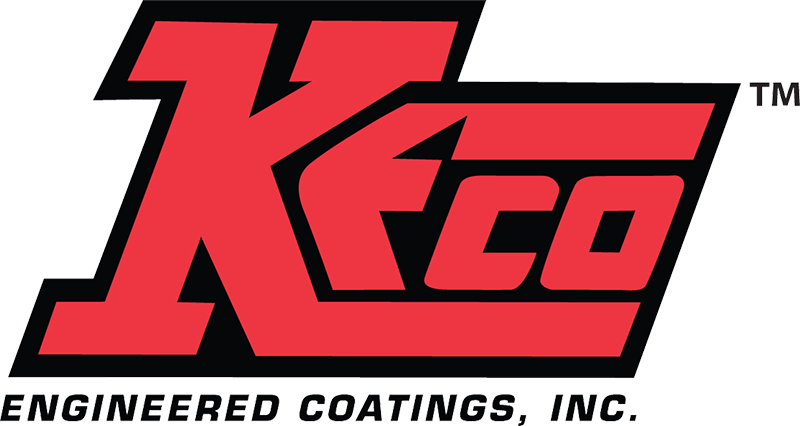Polyurethane coatings are versatile materials with many applications in various industries. These coatings play a crucial role in the pharmaceutical industry, ensuring the durability, safety, and efficiency of pharmaceutical products and processes. Polyurethane coatings serve as essential tools in maintaining compliance with regulatory standards and ensuring product integrity, as characterized by their exceptional chemical resistance, durability, flexibility, and biocompatibility. Let’s explore the nine diverse uses for polyurethane coatings in the pharmaceutical industry, highlighting their significance in fostering safety, precision, and innovation.
Protective Coatings for Pharmaceutical Equipment
Pharmaceutical manufacturing involves the use of highly specialized equipment to produce medicines, biologics, and other therapeutic products. These machines must stand up to harsh chemicals, high temperatures, and regular cleaning cycles, all of which can lead to wear and tear over time. Polyurethane coatings will protect equipment surfaces, rendering them more resistant to chemical corrosion, abrasion, and mechanical stress. These protective coatings ensure the longevity of expensive machines, reducing frequent maintenance costs and production downtime.
These types of industrial coatings create a smooth, non-porous surface on equipment, making them easier to clean and disinfect. Maintaining strict hygiene standards is vital in pharmaceutical production to prevent contamination. Coated surfaces minimize microbial growth and ensure compliance with Good Manufacturing Practice (GMP) guidelines.

Barrier Coatings for Drug Delivery Systems
Polyurethane coatings are ideal for drug delivery systems due to their versatility and ability to create controlled-release mechanisms. Polyurethane serves as an effective barrier material, modulating drug diffusion rates and ensuring precise dosage over time. Drug-eluting stents, microcapsules, transdermal patches, and similar coated systems leverage polyurethane to control the delivery of therapeutics, maintaining consistent efficacy.
Polyurethane coatings protect active pharmaceutical ingredients (APIs) from environmental factors, such as moisture, oxygen, and light, that can degrade their potency. This stability is particularly crucial for sensitive drugs and biologics, allowing them to maintain extended shelf life and therapeutic effectiveness.
Medical Implant Applications
Another significant use of polyurethane coatings within the pharmaceutical and medical device industry is in implants. Polyurethane’s biocompatible properties make it an ideal choice for coating pacemakers, joint replacements, catheters, and other medical implants. These coatings ensure that implants can coexist with bodily tissues and fluids without triggering adverse immune responses.
The flexibility and durability of polyurethane allow coated devices to perform optimally even under the mechanical stress of bodily movements. They create a layer that resists wear, reduces friction, and protects the base material of the implant, extending its functional lifespan. The pharmaceutical and medical device industries can deliver safer and more effective solutions for patients with polyurethane-coated implants.
Protective Coatings for Clean Rooms
Clean rooms are critical environments in pharmaceutical production where controlled conditions are necessary to limit particle contamination. Clean room walls, floors, and ceilings must meet stringent hygiene and durability standards to mitigate contamination risk and ensure compliance with regulatory requirements. Clean room builders frequently use polyurethane coatings on each surface because of their chemical resistance, seamless finish, and impermeable qualities.
Polyurethane-coated surfaces are easy to clean and withstand frequent usage of disinfectants, maintaining sterility over time. These coatings resist cracking, peeling, and disruption, which could otherwise compromise the clean room environment. Their application contributes to the overall cleanliness and safety of drug manufacturing areas.
Coatings for Pharmaceutical Storage
The storage and transportation of pharmaceutical products require proper environmental conditions to preserve their quality and efficacy. Polyurethane coatings play a role in creating insulated and durable storage systems, such as tanks, containers, and packaging materials. These coatings protect against damage caused by temperature fluctuations, physical impacts, and chemical exposure, securing the pharmaceutical products during distribution.
Cold chain logistics often use polyurethane foam coatings as thermal insulators to maintain low temperatures for temperature-sensitive biologics and vaccines. This insulation ensures the integrity of the pharmaceutical supplies, reducing wastage and enhancing patient safety.
Anti-Corrosion Applications in Pipelines and Processing Systems
Pipelines and processing systems in pharmaceutical manufacturing bodies transport various drugs, chemicals, and cleaning agents. This transport system is vulnerable to corrosion caused by chemical exposure, which can compromise the quality of the product flowing through it. Polyurethane coatings offer excellent anti-corrosion properties, ensuring the interior and exterior surfaces of pipelines remain intact and uncontaminated.
Polyurethane also reduces the risk of system failures and contamination incidents by preventing corrosion, which is crucial for maintaining the quality of pharmaceutical formulations. This functionality demonstrates the coating’s significant role in supporting uninterrupted operations and streamlining manufacturing processes.
Enhanced Resistance To Wear and Tear
A superior resistance to wear and tear is another prominent benefit of polyurethane coatings in the pharmaceutical industry. These coatings provide extra durability under heavy usage, whether applied to conveyor belts, transfer systems, or mechanical components. Pharmaceutical production facilities often operate around the clock, placing a strain on the equipment and infrastructure. Polyurethane coatings mitigate this wear, extending the lifespan of machinery and ensuring smooth processes.
The resistance of polyurethane to mechanical stress enhances operational efficiency while minimizing shutdowns or replacements. This enhancement directly translates to cost savings and operational reliability, both of which are invaluable to the pharmaceutical industry.

Safety Enhancements
Safety is of paramount importance in the pharmaceutical sector for end-users who take the medications the sector produces and for staff working within production environments. Polyurethane coatings often feature non-slip properties, which the industry uses to enhance the industrial floor’s safety. Coated floors ensure personnel can work in wet or spill-prone areas without fear of slips or injuries.
Manufacturers can formulate polyurethane coatings to be flame-retardant, contributing to overall workplace safety. Their ability to resist microbial proliferation further reduces health hazards, protecting both processes and workers against dangerous pathogens.
Sustainability and Eco-Friendly Solutions
While polyurethane coatings provide an array of benefits, sustainability is becoming increasingly important in the pharmaceutical industry. Manufacturers are developing innovative coatings with eco-friendly polyurethane formulations. These materials have lower environmental impacts, reduced carbon footprints, and recyclable properties, aligning with pharmaceutical companies’ sustainability goals.
Designing coatings that can withstand rigorous industry demands while being environmentally responsible ensures that the pharmaceutical sector can innovate purposefully without sacrificing ecological priorities.
Utilize Polyurethane How You Need
Polyurethane coatings have revolutionized the pharmaceutical industry with their adaptability, durability, and protective properties. These coatings address a spectrum of needs, from safeguarding critical equipment and clean rooms to enhancing the safety of drug delivery systems and implants. Their resistance to environmental challenges contributes to product longevity and efficiency across production, storage, and logistics.
Polyurethane coatings will remain a crucial player in bridging operational excellence with environmental responsibility, as the pharmaceutical industry continues to advance and sustainability takes center stage. The pharmaceutical sector is paving the way for safer, more efficient, and innovative health-care solutions by adopting these versatile materials.


